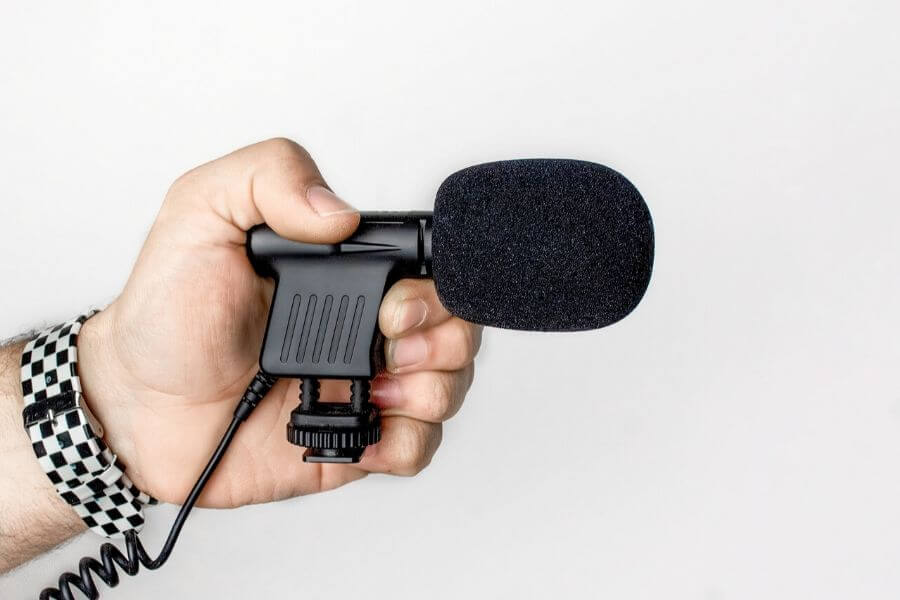
In China’s judicial practice, recording is a common way of collecting evidence. If the private conversation recording without the permission of the other party satisfies certain conditions, the court may admit it as evidence.
I. Are secret recordings admissible in Chinese courts?
There are eight types of evidence stipulated in Article 63 of the Civil Procedure Law (CPL) of China, among which the recording evidence is incorporated in Type 4 “audio-visual materials”. In addition, in the Succession Law of China, there are also provisions on “will made by recording”. Therefore, recording falls under the types of evidence permitted by the law.
Although recording can be used as legal evidence, in practice, recording is often made secretly without any awareness of the other party. As for the secret recording, the attitude of Chinese courts has made the shift from negative to positive.
Previously, Chinese courts held that secret recordings were illegal and thus could not be used as evidence at all. [1]However, such a rule excessively limited the means to collect evidence by the parties and therefore had been challenged and criticized by many. In 2001, Chinese courts relaxed the restrictions on secret recording, and admitted its status as evidence provided that it neither infringed upon the legitimate rights and interests of others nor violated the prohibitive provisions of the law. By 2015, secret recording can generally be used as evidence unless it “severely” infringes on the legitimate rights and interests of others, violates the prohibitive provisions of the law, or is collected in a way that violates public order and good morals. [2]
In addition to the above criteria, some judges have also proposed the following points:
1. The party concerned shall be present at the time of recording, and it is better that the party himself/herself makes the recording personally.
2. The secret recording should not be made in the place where recording is prohibited, nor by fraud or coercion;
3. Generally speaking, the recording alone cannot be used as the basis for finding the facts, and it must be used together with other evidence to achieve the effect of proof. [3]
II. What kind of recordings is unlikely to be admitted?
According to our experience, in the following situations, the recordings are likely to be dismissed:
1. If someone submits a recording of a conversation where all the participants have agreed “no recording” at the beginning, the recording of this kind will very much likely be deemed as illegal for violating the right of privacy;
2. Where the recording contains fraud and coercion-related contents;
3. Where the recording is collected in a way that may violate public order and good morals. For example, in a divorce case, one party instigates a kid to talk with the other party and record the conversation secretly;
4. Where the recording is collected by illegally using professional monitoring equipment;
5. Where the recording is collected by installing equipment in other’s private space (such as a bedroom or a car);
6. Where the recording is collected in a place where the same is prohibited (such as in a courtroom);
7. Where the recording is collected by hacking into a computer or a mobile phone through Trojan program.
III. What is ideal recording evidence like?
Ideal recording evidence often has the following characteristics:
1. The recording should preferably be made by the parties concerned personally;
2. The basic information of the conversation such as the time, location and the identities of the participants should be clear;
3. The tone in the conversation should better be calm;
4. The conversation should better focus on the disputed facts and avoid pointless argument;
5. The original media (such as recording pen and mobile phone) shall be well preserved;
6. If the recording is highly important, it is recommended to engage a notary to notarize the recording process.
Finally, we need to remind the readers that documentary evidence is still the most important evidence in China’s judicial practice( See the post Documentary Evidence - The King of Evidence in Chinese Civil Litigation), while recording evidence is generally used as auxiliary evidence.
References:
[1] 《最高人民法院关于未经对方当事人同意私自录音取得的资料能否作为证据使用问题的批复》(法复[1995]2号)曾规定“未经对方当事人同意私自录制其谈话,系不合法行为,以这种手段取得的录音资料,不能作为证据使用。”
[2] 《最高人民法院关于民事诉讼证据的若干规定》中“以侵害他人合法权益或者违反法律禁止性规定的方法取得的证据,不能作为认定案件事实的依据。”和《最高人民法院关于适用<中华人民共和国民事诉讼法>的解释》第106条关于“对以严重侵害他人合法权益、违反法律禁止性规定或者严重违背公序良俗的方法形成或者获取的证据,不得作为认定案件事实的根据”
[3] 案号:一审(2006)宣民初字第00745号;二审(2006)一中民终字第7422号。王磊(二审主审法官) 《人民司法(案例)》 第75页 2008年
案号:一审(2006)崂民三初字第241号。朱铁军 《人民司法(案例)》 第78页 2008年
Photo by Allec Gomes(https://unsplash.com/@allecgomes) on Unsplash.
Contributors: Chenyang Zhang 张辰扬 , Xuan Zhao 赵暄





